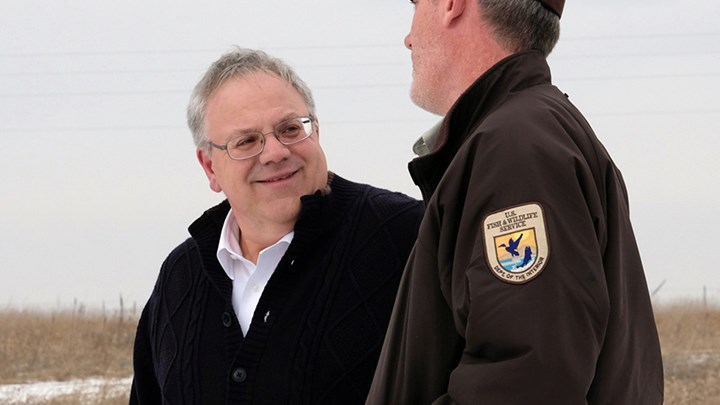
by Erin C. Healy - Thursday, April 11, 2019

After a successful cloture vote late yesterday, today members of the U.S. Senate voted 56 to 41 to confirm David Bernhardt as Secretary of the Department of the Interior (DOI). Two Democrats, Senator Joe Manchin of West Virginia, the senior Democrat on the Senate Committee on Energy and Natural Resources, and Senator Martin Heinrich of New Mexico, voted with Republicans in favor of Bernhardt.
During his confirmation hearing on Thurs., Mar. 28, Bernhardt reiterated his intent to follow President Donald J. Trump’s emphasis on energy production. He firmly believes that accessing our country’s expansive energy resources does not have to be at the cost of wildlife or habitat conservation. And he’s proven it when as acting secretary he committed to continuing the conservation efforts started under former DOI Secretary Ryan Zinke. Bernhardt celebrated the successful recovery of the gray wolf and began the delisting process so that the Endangered Species Act could be utilized as intended, not to keep a species listed indefinitely, but to manage it once its population reached a healthy level. He also released funding for numerous state grants to improve migration routes and habitat ranges for Western big game species in the ongoing effort of the department to work more in concert with states and volunteer private landowners.
Bernhardt has been involved in politics since he was 16 and petitioned his city council not to tax arcade games at a teen center he was starting. In 1990, he earned his bachelor’s degree from the University of Northern Colorado, from where he applied for and received an internship at the U.S. Supreme Court. Four years later he graduated with honors from George Washington University Law School and was admitted to the Colorado Bar Association.
During the George W. Bush administration, Bernhardt served as deputy chief of staff and counselor and then as director of congressional and legislative affairs. The U.S. Senate unanimously confirmed him as DOI solicitor, and he served in that capacity from 2006 to 2009. Afterward, he returned to Brownstein Hyatt and Farber, a Denver law and lobbying firm, where he became a shareholder and chairman of the firm’s natural resources law practice. Clients included Halliburton, Cobalt International Energy, Samson Resources and Independent Petroleum Association of America. In 2016 he withdrew his registration as a lobbyist, and assisted President Trump and Representative Devin Nunes (R-Calif.) with staffing the DOI.
Despite cries of conflict of interest, when President Trump tapped him for the deputy secretary position, the National Rifle Association backed the nomination. In addition, letters of support for Bernhardt came in from pro-hunting and conservation organizations such as the Outdoor Recreation Industry Roundtable, Ducks Unlimited and the Boone and Crocket Club.
The Purpose of the Department of the Interior
The mission of the DOI is not just to “conserve,” but also to “manage” the nation’s natural resources, and not just for the “enjoyment” of the American people, but for their “benefit.” More specifically, one of the department’s stated goals is to help indigenous communities to “prosper.” The vision for the department under President Trump includes the following:
E-mail your comments/questions about this site to:
[email protected]
